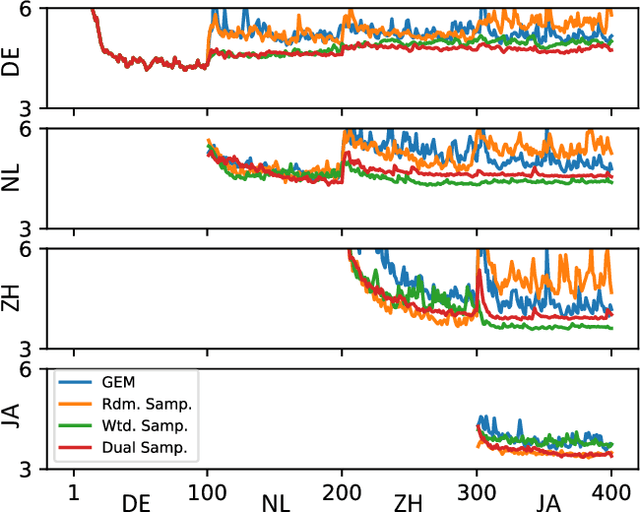Towards Lifelong Learning of Multilingual Text-To-Speech Synthesis
Paper and Code
Oct 09, 2021



This work presents a lifelong learning approach to train a multilingual Text-To-Speech (TTS) system, where each language was seen as an individual task and was learned sequentially and continually. It does not require pooled data from all languages altogether, and thus alleviates the storage and computation burden. One of the challenges of lifelong learning methods is "catastrophic forgetting": in TTS scenario it means that model performance quickly degrades on previous languages when adapted to a new language. We approach this problem via a data-replay-based lifelong learning method. We formulate the replay process as a supervised learning problem, and propose a simple yet effective dual-sampler framework to tackle the heavily language-imbalanced training samples. Through objective and subjective evaluations, we show that this supervised learning formulation outperforms other gradient-based and regularization-based lifelong learning methods, achieving 43% Mel-Cepstral Distortion reduction compared to a fine-tuning baseline.
 Add to Chrome
Add to Chrome Add to Firefox
Add to Firefox Add to Edge
Add to Edge